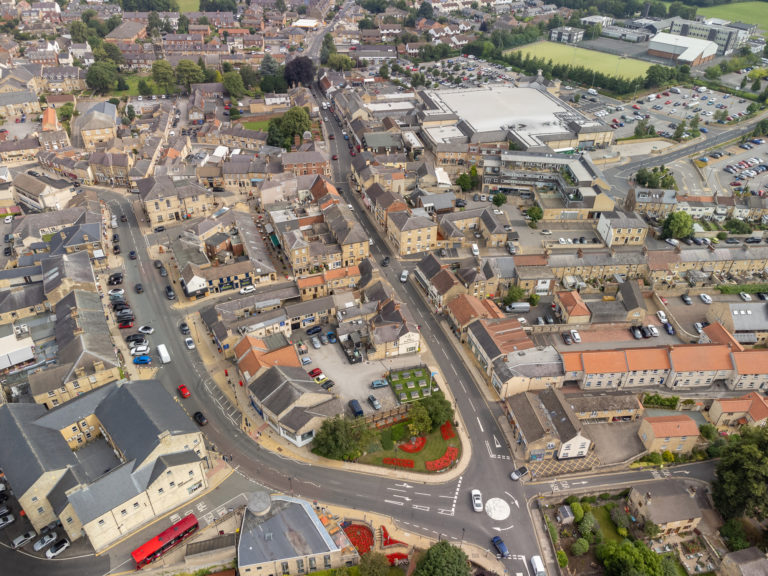Transport
Well planned and integrated transport investment can be an important ingredient in driving economic growth and improving quality of life.
Updated:
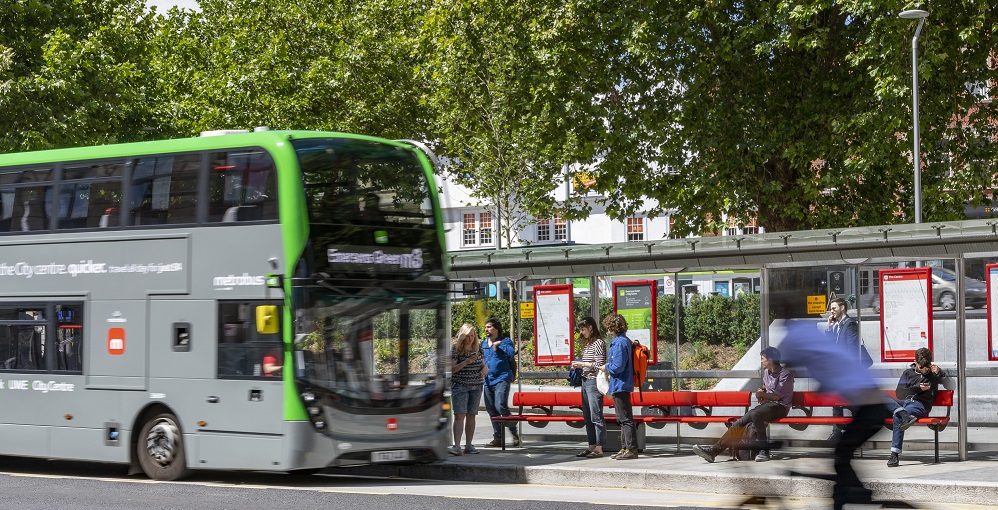
Summary
The Commission undertakes research into specific transport proposals when asked to do so by government, but also advises on broader questions of policy and approach to planning upgrades and new investment in road, rail, and other transport modes.
The Commission transport work covers road, rail, and other modes of transport. We focus on what different these modes each do best and how they integrate with other types of transport to create the most efficient and user friendly systems for passengers and support the economic geography of the country and, in particular, its towns and cities. Our work seeks to anticipate future usage trends, such as the impact of the recent pandemic on public transport, to help inform robust recommendations for investment and policy making.
With a long term perspective, the Commission also considers likely developments in technology and what investment should be made to prepare our networks for the future.
With almost a quarter of the UK’s total greenhouse gas emissions currently coming from surface transport, we actively consider the importance of decarbonising the UK’s travel by developing lower emission public transport systems and preparing for the widescale use of electric vehicles. Tackling urban congestion and other barriers to growth where travel solutions – in particular, better public transport – can play a role are significant challenges shaping our work.
The Second National Infrastructure Assessment, published in October 2023 states that improving transport provision is crucial to the goal of levelling up economic opportunities in all parts of the country and improving the quality of life. To this end, the Assessment addresses two key challenges: how improved urban mobility and addressing congestion, and how multimodal interurban transport strategies, can both support regional growth.
The Assessment shows that getting more people making more trips into and around city centres is essential for English cities outside of London to have any chance of succeeding in levelling up their regional economies. To do that, cities will need flexible strategic transport plans that can adapt to a range of future transport demand scenarios; to avoid adding to existing congestion and undermining net zero efforts, they’ll need to actively shift more of those additional journeys from cars onto other modes of transport. So, cities will need to make improvements that ensure public transport and active travel are more attractive and reliable options for more travellers, while also giving serious consideration to some form of demand management.
Our work on interurban transport recommends a transport strategy built around a single vision to drive economic opportunity and narrow disparities between regions and protect and enhance the environment. This needs to incorporate strategic roads and major roads as well as heavy rail projects.
The decision to cancel HS2 north of Birmingham leaves a major gap in the UK’s rail strategy around which a number of cities have based their economic growth plans. While government has committed to re-allocate all the released funding to improve transport, including rail links, in the North and Midlands, it is not yet clear what the exact scope and delivery schedule is for the proposed new rail schemes. A new comprehensive, long term and fully costed plan that sets out how rail improvements will address the capacity and connectivity challenges facing city regions in the North and Midlands is needed.
Transport data
A range of transport data sets is available to review on our Data pages. This includes data sets used in Commission reports, as well as historic data sets. Each can be reviewed online or downloaded.
Review dataNext Section: Key issues
Here you will find a summary of the Commission’s position on key issues emerging from our work related to transport.
Key issues
Here you will find a summary of the Commission’s position on key issues emerging from our work related to transport.
Improving transport investment and planning in cities
England’s largest cities are congested and their public transport networks underperform relative to comparable European cities. It is important to ensure that the largest regional cities have the public transport capacity – seats and standing space on bus, trams and rail – they are likely to need in the future to support growth and quality of life.
In our Second National Infrastructure Assessment, the Commission recommended government should commit long term funding of £22 billion for major transport projects in cities, from 2028 to 2045. The initial focus for this should be those cities likely to have the greatest need for increased capacity, but some of this funding should also be made available to other cities where there is likely to be a need for increased capacity or connectivity.
Mass transit alone is unlikely to be sufficient to encourage greater use of public transport, however. To encourage modal shift and enable an increase in trips in congested cities, government should make long term funding for major projects conditional on the introduction of demand management schemes, to be designed by cities to work best in their local context. The revenue raised should then be retained by the local area for investment in public transport and active travel.
While central government will be the primary source of capital funding for major transport projects in cities, cities should be expected to contribute towards the costs. Government should therefore work with cities to investigate and facilitate financing mechanisms and funding sources that could include a combination of business rates retention, third party contributions, forms of land value capture, and new income streams, to support the delivery of local public transport infrastructure.
Devolving power locally
Local authorities responsible for strategic transport need sufficient funding to maintain existing assets and invest in smaller network enhancements, such as zero emission buses.
It is essential that central government gives such authorities devolved budgets that allow them to plan for the long term. Local authorities are better placed than central government to determine what their priorities are for transport investment, as they better understand local issues and opportunities. Such a change will also help places develop locally led infrastructure and growth strategies through which transport investment can be considered alongside housing and land use development.
We have recommended government supports £8 billion of annual investment in local transport, which should consist of a combination of devolved budgets and locally raised revenue. This represents a 20 per cent increase on current spending levels, spread across all different area types. The government should also provide greater certainty for places that these five year settlements will be renewed, enabling longer term planning and capacity building.
Every local transport authority should have a long term infrastructure strategy for the towns in its area, supported by a pipeline of projects. These strategies should be developed locally and collaboratively as part of, or complementary to, distinctive 15-year place based plans for the economic development of towns. Infrastructure strategies and wider plans should draw on local strengths, presenting a distinctive vision for towns.
To ensure accountability, infrastructure strategies and wider plans should set out clear, transparent outcomes and, at the end of each five year funding period, local authorities will need to carry out assessments of whether those outcomes have been achieved.
Investing in urban networks
For the national road and rail networks, the government’s first priority should be to maintain existing networks by investing adequately in maintenance and renewal, including ensuring resilience to climate change impacts.
It should then plan and invest in enhancements to the networks aligned to an integrated strategy for interurban transport, targeting underperforming sections of the network with enhancements that can facilitate trade in goods, and provide better connections between cities to facilitate trade in services.
For the road network, a pipeline of projects with these aims in mind is required for the next 20 to 30 years.
Enabling a rapid rollout of electric vehicles
Increasing the adoption of electric vehicles (EVs) will be key to decarbonising surface transport. Electric cars and vans are the future of road transport. As well as being zero emission, they are cheaper to run and create less air pollution.
Consumers will only purchase EVs if they are confident they can charge them when they need to. The government expectation of 300,000 public chargers being available by 2030 should deliver this, but to meet this expectation, the number of public charge points installed annually must continue to grow at around 30 per cent per year. To ensure zero emission vehicle take up is viable, charge point provision must be spread across the country to support journeys of all types.
The government’s main policy to drive the transition to EVs is the zero emission vehicle mandate. However, the Commission’s review of the government’s decarbonisation plans has highlighted uncertainties in delivery of desired emissions reductions: for instance, in the speed of the transition of the car and van stock to zero emission vehicles, the fuel efficiency of the remaining petrol, diesel and hybrid vehicles, and future traffic demand.
To manage uncertainty, the Commission recommends that government establish an annual monitoring and review regime to assess progress against its decarbonisation targets. Alongside this, as part of the work preparing an integrated interurban transport strategy, government should prepare adaptive measures to reduce emissions from road transport, to be deployed if required.
Rail enhancements
With the Government announcement that High Speed 2 from Birmingham to Manchester will not go ahead there is a major gap in the UK’s rail strategy around which a number of cities have based their economic growth plans. While government has committed to reallocate all of the released funding to improve transport (including rail links) in the North and Midlands, it is not yet clear what the exact scope and delivery schedule is for the proposed new rail schemes.
A new comprehensive, long term and fully costed plan that sets out how rail improvements will address the capacity and connectivity challenges facing city regions in the North and Midlands is needed.
Future of freight
Freight is essential to modern life. Increases in just-in-time manufacturing processes and the popularity of online shopping mean the UK freight sector is set to grow considerably.
1.6 billion tonnes of goods are currently moved around the UK each year, and over the next 30 years demand for heavy and light freight transport is expected to increase significantly. This has major implications for how emissions and urban congestion are tackled: projections suggest road and rail freight might contribute as much as 20 per cent of the UK’s greenhouse gas emissions by 2050, if action is not taken.
In a report in 2019, the Commission recommended new diesel HGV sales end by 2040 as part of efforts to help freight become carbon-free by 2050. Freight logistics must also be considered earlier in the planning system, to ensure infrastructure and better design solutions are available to reduce congestion.
Connected and autonomous mobility
Across transport, technology is revolutionising how people and goods move around the country.
Automation and connectivity are central to this: together they present significant opportunities for delivering improvements to road safety, reducing congestion, improving reliability and accessibility of transport services, and increasing productivity.
To maximise these benefits, it is important to consider how infrastructure is planned, operated and maintained. Uncertainty is inherent in any emerging technology, but the government expects that by 2025, the UK will begin to see deployments of self-driving vehicles.
There is a need to consider the incremental steps and interventions that may be required across the UK’s infrastructure to pursue a pathway towards more wide-spread adoption and the desired benefits.
Transport for a world city
London’s transport system must be maintained at its current world class level, given the important role London plays both regionally and nationally.
London is important for national growth: it is projected to grow faster than any other English city, and the taxes paid in London help fund infrastructure and other services in other parts of the UK.
Transport for London’s current capital investment plans take a prudent approach to uncertainty, reflecting changes to travel demand following the Covid-19 pandemic. Passenger numbers on public transport in London have not yet recovered to pre-pandemic levels. Given the corresponding reduction in revenue, Transport for London has received a number of emergency, short term funding deals from government which have provided revenue support and capital funding.
In the Second National Infrastructure Assessment, the Commission recommends that government should agree a long term funding settlement to enhance and expand London’s public transport network to unlock growth and housing opportunities, and support quality of life. Government should also work with the Mayor of London to establish the priorities for public transport enhancements over the next 10-20 years and reach agreement on the appropriate combination of grant support, retained business rates and local mechanisms that can be used to finance and fund them.
Headline recommendations
Accelerate the deployment of electric vehicle public charge points
Government must accelerate deployment of electric vehicle public charge points to reach its expectation of 300,000 public charge points by 2030 and keep pace with sales of electric vehicles.
Establish a monitoring and review regime for transport decarbonisation plans
Government should, by 2025, establish a monitoring and review regime for its transport decarbonisation plans that reflects the uncertainty in carbon emissions outcomes from surface transport. The need for action to ensure decarbonisation targets are met should be reviewed annually, and all relevant information made publicly available. Carefully designed, adaptive policies that can be introduced, if necessary, should be prepared as part of the work on the integrated transport strategy.
Government should commit to long term funding of £22 billion for major transport projects in cities
Government should commit long term funding of £22 billion for major transport projects in cities from 2028 to 2045. The initial focus for this funding should be on those cities that are likely to have the greatest need for increased capacity, justifying investment in rail or tram type projects – the Commission’s analysis indicates that these cities are Birmingham, Bristol, Leeds and Manchester. Some of this funding should also be made available to other cities where there is likely to be a need for increased capacity or connectivity. To reflect the uncertainty over future travel demand and cost, the total investment package should be reappraised before final decisions are made on which projects to take forward
Encourage modal shift and enable an increase in trips in congested cities
To encourage modal shift and enable an increase in trips in congested cities, government should make the long term funding for major projects outlined in recommendation 17 conditional on recipient cities committing to introduce a demand management scheme, in a way that is designed to work best in the local context. The exact form and sequencing of the demand management scheme should be a decision for the individual city, and the revenue raised should be retained by the local area for investment in public transport and active travel.
Cities benefitting from major transport projects should make a significant contribution to capital costs
The cities that directly benefit from the major transport projects outlined in recommendation 17 should make a significant contribution to the capital costs. Government should expect a local contribution of at least 15 to 25 per cent towards the total cost of the investment – although there are scenarios where a higher contribution may be expected, particularly for less expensive investments. Government and the UK Infrastructure Bank should work with cities to investigate and facilitate financing mechanisms and funding sources that could include a combination of business rates retention, third party contributions, forms of land value capture, and new income streams, to support the delivery of local public transport infrastructure.
Government should move faster in devolving powers and funding for local transport to local authorities
Government needs to move faster in devolving powers and funding for local transport to local authorities. By the next Spending Review, government should have agreed single multiyear financial settlements for existing mayoral combined authorities to invest in local priorities, and then continue to roll these out to new mayoral combined authorities. All county councils and unitary authorities that remain responsible for strategic transport planning should be provided with devolved five year transport budgets by the end of 2025, sufficient to cover maintenance, renewals and small to medium enhancements.
Government should ensure that £8 billion a year is available for devolved transport budgets for local authorities outside London, consisting of a combination of central government grants and locally raised funds.
Maintain the existing road network by investing adequately in maintenance and renewal
Government’s first priority for roads should be to maintain the existing network by investing adequately in maintenance and renewal, including to ensure proportionate resilience to climate change impacts. Government should enhance the road network on a strategic basis, with improvements targeted at underperforming sections of the network, aligning schemes with complementary policies for economic growth and giving initial priority to interventions in regions with underperforming productivity.
By the end of 2026 and ahead of commencing work on Road Investment Strategy 4 (2030 to 2035), government should use the improvement options outlined in the Commission’s analysis, alongside projects identified in partnership with sub national transport bodies, mayoral combined authorities and pan regional partnerships that unlock regional economic opportunities, to develop a pipeline of future interurban road projects over a thirty year horizon.
Prioritise maintenance and renewal of the existing rail network
Government should prioritise maintenance and renewal of the existing rail network, ensuring proportionate resilience to climate change impacts. Government should develop a new comprehensive and long term plan for rail enhancements to address the capacity and connectivity challenges in the North and Midlands, alongside completion of East West Rail and a portfolio of targeted network enhancements across the country.
Develop an integrated strategy for interurban transport
By the end of 2026, government should develop an integrated strategy for interurban transport to frame the development of Control Period 8 for rail (2029-34) and Road Investment Strategy 4 (2030-35). This should incorporate a long term vision for network performance and resilience, a pipeline of strategic improvements to road and rail over the next 30 years, as outlined in recommendations 22 and 23, and a plan for decarbonisation, as outlined in recommendation 13. It should also set out government’s approach to harnessing the benefits of new technology and achieving environmental net gain
Government should commit to decarbonising road freight by 2050
Government should commit to decarbonising road freight by 2050, announcing plans by the end of 2021 to ban the sale of new diesel powered HGVs no later than 2040. To support this:
- government should, in conjunction with distribution and transmission network operators, prepare detailed assessments of the infrastructure required to enable the uptake of battery electric or hydrogen HGVs, including the refuelling requirements at depots and key rest areas on major freight routes. For battery electric, these assessments should include enhancements to distribution networks alongside alternatives to reinforcement, such as energy storage. For hydrogen, these assessments should cover the production, storage and distribution of hydrogen, including any dependency with the decarbonisation of the heating supply system.
- Ofgem, as part of the next energy distribution price review (RIIO‑ED2) starting in 2023, should include a clear requirement for distribution network operators (in partnership with the freight industry) to map out the infrastructure upgrades and opportunities for alternative solutions, such as energy storage, required to enable large scale freight van charging at depots.
A full strategy for rail freight to reach zero emissions by 2050
Government should undertake detailed cross‑modal analysis, using a corridor‑based approach, of the long term options for rail freight’s transition to zero emissions, including low carbon rail services and the scope for road based alternatives. It should then publish, by the end of 2021, a full strategy for rail freight to reach zero emissions by 2050, specifying the investments and/or subsidies that it will provide to get there.
Local authorities should include urban freight within their infrastructure strategies
To help manage peak time congestion on the urban transport network, local authorities should include a plan for urban freight within the infrastructure strategies they are developing. These plans should review local regulations to incentivise low congestion operations, consider the case for investments in infrastructure such as consolidation centres, and identify the land and regulatory requirements of new and innovative low congestion initiatives.
New planning practice guidance on freight for strategic policy making authorities
Government should produce new planning practice guidance on freight for strategic policy making authorities. The guidance should better support these authorities in planning for efficient freight networks to service homes and businesses as part of their plan making processes. This new planning practice guidance, which should be prepared by the end of 2020, should give further detail on appropriate considerations when planning for freight, such as the need to:
- provide and protect sufficient land/floorspace for storage and distribution activities on the basis of population and economic need, with particular consideration for the floorspace requirements for last mile distribution and consolidation centres;
- support the clustering of related activities within a supply chain, minimising the distance that goods must be moved and maximising the potential for efficient operations;
- maximise the potential for freight trips to be made at off peak times; and
- accommodate deliveries and servicing activity at the point of delivery.
A data standard for freight data collection to support local authorities
Government should develop a data standard for freight data collection to support local authorities, outlining the requirements for technological capability, data requirements, and data format. Such a standard must seek to ensure consistent data quality and format across technologies to allow regional and national aggregation, and should be complete by the end of 2020.
Establish a Freight Leadership Council
Government should establish a new bi‑annual ‘Freight Leadership Council’, inviting representatives from BEIS, DfT, MHCLG, DEFRA and HM Treasury, devolved administrations, all freight modes and parts of the supply chain. This Council’s main focus should be on strategic, long term issues – specifically supporting decarbonisation of road and rail freight by 2050. This Council should hold its first meeting before the end of 2020.
Transport should be designed to unlock major housing growth
- 1a: Government should progress work on East West Rail, the Expressway and new settlements through a single co-ordinated delivery programme, with cross-government ministerial commitment and oversight. The aim of this programme should be to unlock opportunities for transformational housing growth through the creation of well-connected new communities. As part of this programme Government should commit:
- £1bn to deliver the infrastructure necessary for a high quality and resilient rail commuter service between Bicester and Bedford, accelerating delivery of this section of East West Rail to a target date of 2023;
- to accelerate work on the development of the new East West Rail line between Bedford and Cambridge, and commit to open the line by 2030; and
- to deliver the ‘missing link’ of the Oxford-Cambridge Expressway, accelerating development work to deliver a clearly-defined and agreed route by 2025, enabling construction to begin as part of the next Road Investment Strategy (RIS 2) and be complete by 2030.
- Key milestones and decision points in the development of East West Rail and the Expressway should be subject to “in principle” agreement to the development of significantly more ambitious proposals for housing growth in the arc, including major new settlements and urban extensions, and subsequently, progress in identifying, evaluating and designating sites. “In principle” agreement should be provided within 12 months. The schemes should be futureproofed to ensure the potential for expansion and improvement is not permanently and prematurely closed.
- 1b: Government should seek to introduce fast, direct services to London to enable growth in the arc between Bicester and Bletchley and improve connectivity between London and Aylesbury. Any such improvements should be contingent on local authorities’ commitment to major development between Bicester and Bletchley and around existing settlements.
- 1c: Government should work with the private sector and the relevant local authorities to agree funding packages and progress schemes to support housing and employment growth now. These should include:
- essential works required to enable passenger services between Oxford and Cowley no later than 2019
- the acceleration of East West Rail phase 3 works around south Cambridge to enable the deliver of a Cambridge South station in 2022 as part of Control Period 6.
- Substantial private sector and local contributions, reflecting the benefits that these parties gain, will be required to enable the delivery of these schemes.
Latest Updates
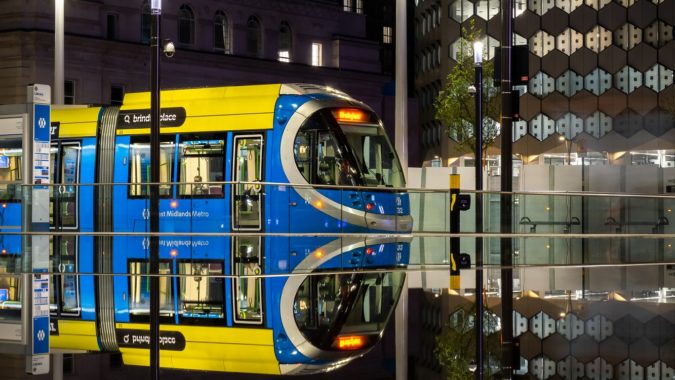
Getting cities moving past “Covid fog” critical for success of levelling up
Enabling people to make more trips in and around our major cities is a challenge that city leaders and national government must tackle head on by making urban transport networks work better – within carbon constraints – if they are to achieve levelling up, according to a new report from the National Infrastructure Commission. The...

Government’s next steps on freight: welcome ambition, detailed plans now needed
This week the government published its long-term plan for the freight sector, Future of Freight. Government committed to publishing this in its response to the Commission’s 2019 study, Better Delivery: The challenge for freight. The Commission’s main conclusion in that study was that through the adoption of new technologies and the recognition of freight’s needs...

James Heath’s speech to Utility Week Live: climate adaptation and resilience
The Commission’s Chief Executive, James Heath, today (17 May 2022) gave a keynote address at Utility Week Live on climate adaptation and resilience. The session, held at the Birmingham NEC, explored utilities’ approaches to adaptation planning and how they are seeking to build resilience to respond to the impacts of climate change already present, as...
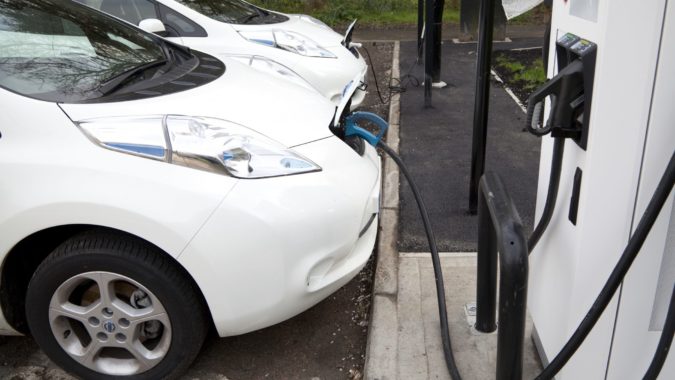
Electric Vehicle Strategy “a promising package” but delivery remains key
The government’s has today published its Electric Vehicle (EV) Infrastructure Strategy setting out how it plans to ensure the UK is “EV-fit” by 2030, the date after which sales of new petrol and diesel cars and vans will be banned. The new strategy sets out a number of actions to boost the pace of roll-out...
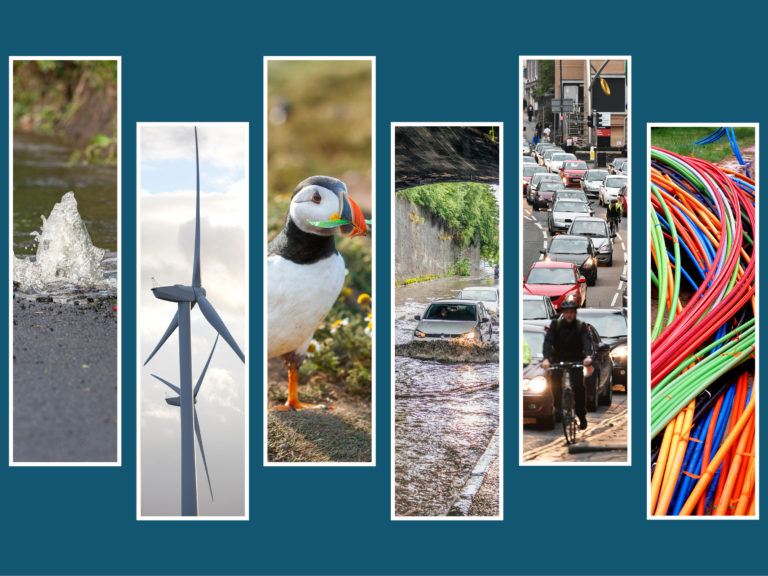
NIA2 Baseline Charts
Data from the Baseline Report providing an overview of the current performance of the infrastructure sectors within the Commission's remit

Infrastructure Progress Review 2022
Our annual assessment of the government's progress on implementing its commitments on infrastructure.

Commission highlights “slow progress” on infrastructure plans to deliver levelling up and net zero goals
The government is at risk of failing to deliver the aims of its National Infrastructure Strategy unless it picks up the pace with detailed policy design and implementation, the UK’s official independent infrastructure adviser has warned. The National Infrastructure Commission says that clear, long term goals are now in place across most infrastructure areas and...
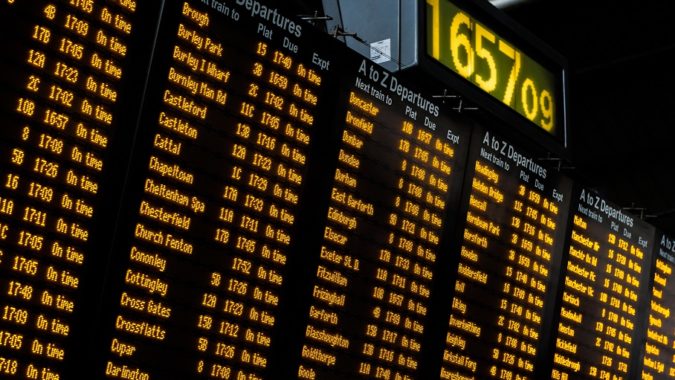
“A realistic plan for major long term investments”: Commission responds to Integrated Rail Plan
Responding to the government’s publication of its Integrated Rail Plan, Chair of the National Infrastructure Commission Sir John Armitt said: “We now have a realistic plan for major long term investments to improve rail for the North and Midlands in the face of public spending constraints. In our advice to government the Commission made the...
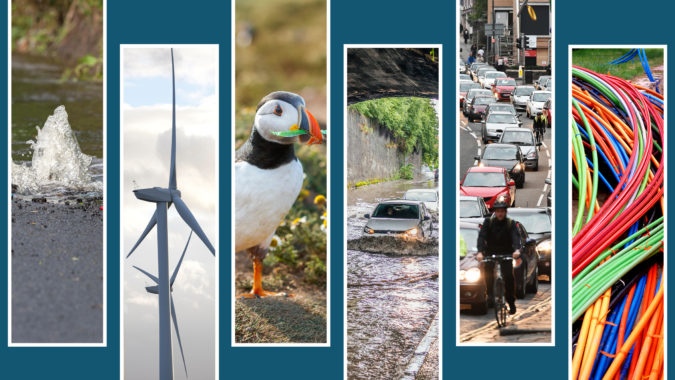
Commission pinpoints strategic gaps in infrastructure planning ahead of next landmark national assessment
The National Infrastructure Commission has announced the topics that will sit at the heart of its next major assessment of the UK’s long term infrastructure priorities, to be published in 2023, following analysis of the current performance of key sectors. The priorities will include identifying the infrastructure needed for hydrogen and carbon capture and storage...
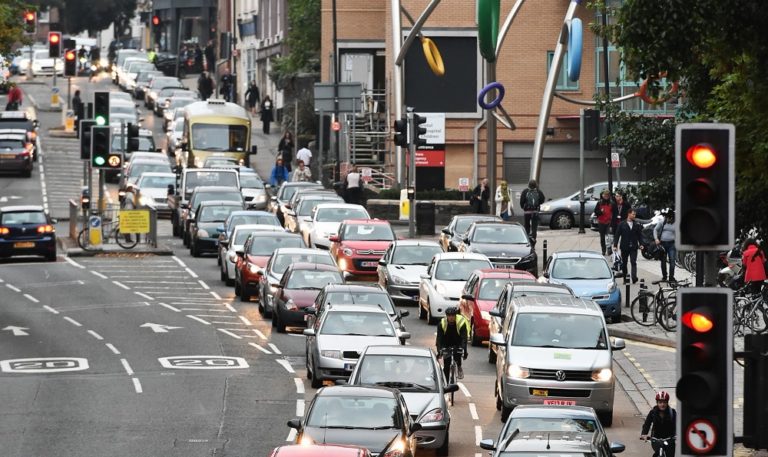
Baseline Report Annex F: Transport
Analysis of the country's transport infrastructure which informs the Baseline Report for the second National Infrastructure Assessment.

Second National Infrastructure Assessment: Baseline Report
Our analysis of the performance of key infrastructure sectors which will inform the work leading to the UK's second National Infrastructure Assessment

Welcome spending plans should “support a more stable national infrastructure planning cycle”
Responding to today’s Budget and Spending Review, Sir John Armitt, Chair of the National Infrastructure Commission, said: “With reasonable capital settlements for key areas including local transport outside London, and an increase in the guidelines for projected infrastructure spending for the long term, these announcements indicate a government keen to support a more stable national...

Infrastructure, Towns and Regeneration
A study exploring how infrastructure investment can support economic prosperity and good quality of life in towns across the country.

Fundamental shift in funding to local level needed to help level up English towns
Levelling up towns will require a shift in government’s approach from announcing multiple ringfenced pots of money – many of which councils must compete over – to instead handing power to local areas to deliver their own infrastructure strategies with five-year devolved budgets, according to the UK’s official infrastructure advisers. In a report launched today...
